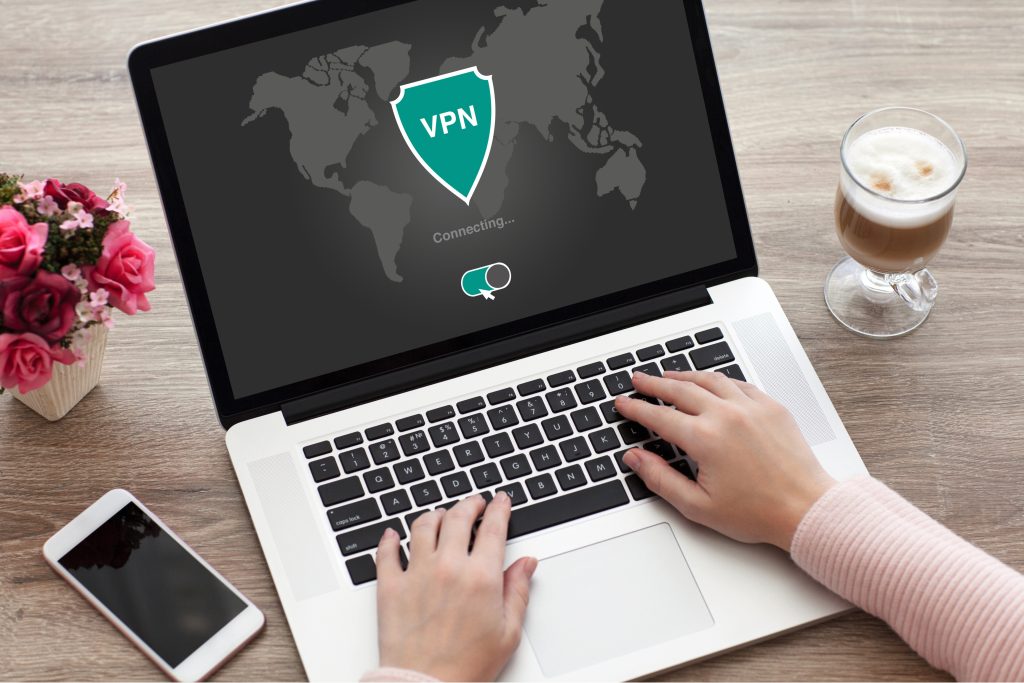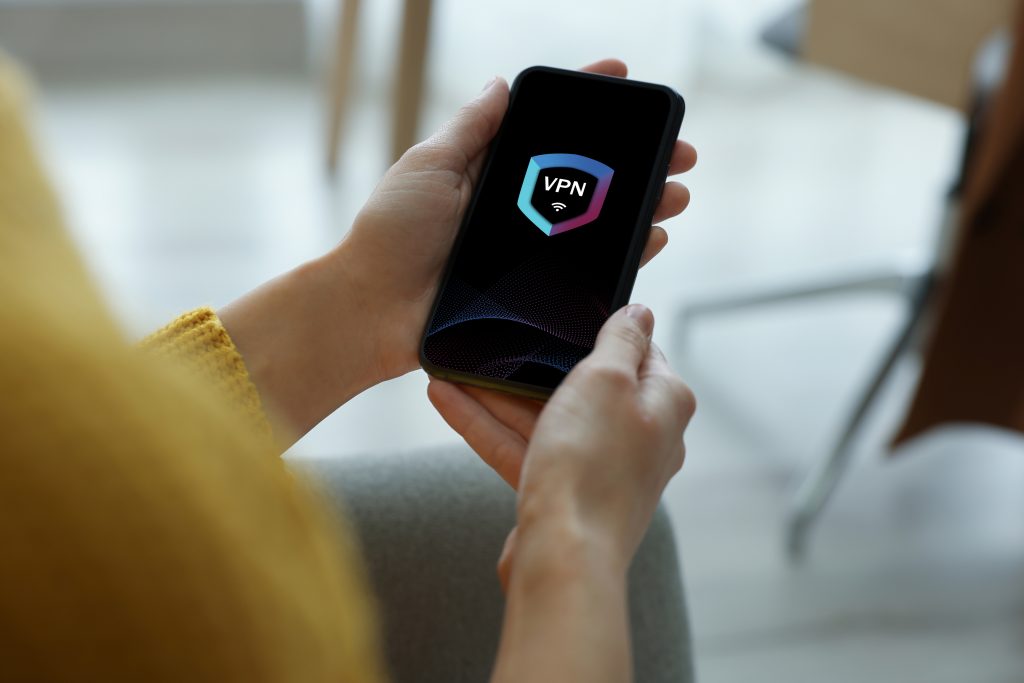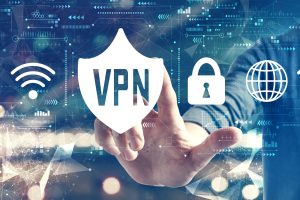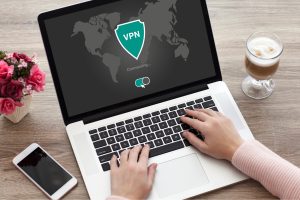Security Unleashed: A Comprehensive Guide To Setting Up VPNs For Cryptocurrency
9 min read
In the world of cryptocurrency, security is paramount. With the increasing popularity of VPNs (Virtual Private Networks) for protecting online transactions, are you confident in your knowledge of setting up a secure VPN for your cryptocurrency activities?
As the value and usage of cryptocurrencies continue to rise, so does the risk of cyber attacks and data breaches. In order to safeguard your digital assets, it is crucial to have a solid understanding of VPNs and how to properly set them up for cryptocurrency transactions.
If you are involved in the world of cryptocurrency, it is essential to prioritize security measures. One of the most effective ways to protect your online activities is by utilizing a VPN. However, setting up a VPN for cryptocurrency transactions can be complex and requires careful consideration of various factors. In this comprehensive guide, we will explore the intricacies of setting up VPNs for cryptocurrency, ensuring that your digital assets are protected from potential threats.
Setting Up Your VPN
Setting up your VPN is an essential step in securing your online activities and ensuring your privacy and data security. Whether you are working remotely, accessing geo-restricted content, or simply want to browse the internet anonymously, a VPN can provide the protection and freedom you need.

Comparing Popular VPN Providers
ExpressVPN, StrongVPN, and NordVPN are popular VPN providers known for their key features and advantages.
ExpressVPN boasts a vast server network with locations in 94 countries, providing users with a wide range of options for accessing content securely. Their encryption strength is top-notch with AES-256 bit encryption, ensuring user data remains private and secure. Speed is also a major advantage, as ExpressVPN is known for its fast and reliable connections.
StrongVPN offers servers in 59 countries, providing decent coverage for users looking to access geo-restricted content. Their encryption strength is also robust with AES-256 bit encryption, ensuring data security and privacy. Speed is a strong point for StrongVPN, with reliable and consistent performance.
NordVPN is known for its extensive server network, with locations in over 60 countries, giving users a wide range of options for accessing content from anywhere in the world. Their encryption strength is also top-notch with AES-256 bit encryption, ensuring user data is secure. NordVPN is also known for its high-speed connections, providing fast and reliable performance.
Choosing a Plan That’s Best for You
When considering VPN and VPS plans, it’s important to understand the different types available. For VPNs, there are options such as shared, dedicated, and cloud-based VPNs. Shared VPNs are cost-effective and suitable for individual use, while dedicated VPNs offer a higher level of security and control. Cloud-based VPNs, on the other hand, are flexible and scalable, making them ideal for businesses with changing needs.
Meanwhile, VPS plans come in various sizes and configurations, allowing for customization and scalability. Users can choose the amount of CPU, RAM, and storage space that best suits their requirements, with the ability to easily upgrade as their needs grow.
In terms of pricing, there are different options to consider, including monthly or annual subscriptions. Many providers also offer discounts for long-term commitments or promotions for new customers.
Considering these factors, it’s important for individuals and businesses to carefully evaluate their needs and budget to determine which VPN or VPS plan is the best fit. By doing so, they can ensure they have the right level of customization, scalability, and pricing to meet their requirements.
Installing and Configuring Your Virtual Private Network
To install and configure your Virtual Private Network (VPN), start by choosing a reputable VPN provider and signing up for a subscription. Next, download and install the client application provided by the VPN service on your device. Launch the application and log in using the credentials provided.
Once logged in, you can create a secure tunnel between your device and the VPN server by selecting a server location and connecting to it. This will route all of your internet traffic through the encrypted VPN tunnel, ensuring that your data remains secure and private.
To configure your VPN properties, you can adjust settings such as the VPN protocol (e.g. OpenVPN, L2TP/IPsec, etc.), kill switch, and DNS leak protection to enhance security. Additionally, you can customize your VPN connection by enabling features like split tunneling or selecting a specific encryption method.
After completing these steps, your VPN will be successfully installed and configured, providing a secure and private connection for all of your online activities.
Security Features of a Good VPN
A good virtual private network (VPN) is essential for protecting your online privacy and security. With the increasing threats of data breaches and surveillance, it’s important to choose a VPN that offers strong security features to keep your information safe.

Encryption Protocols
Cryptocurrency security relies on strong encryption protocols to protect digital assets from unauthorized access and theft. The industry-leading encryption protocol used for securing cryptocurrency is the 256-bit AES encryption, which provides a high level of security by encrypting data with a 256-bit key. This makes it extremely difficult for hackers to decrypt and access sensitive information related to cryptocurrency transactions and holdings.
Other encryption protocols commonly used in cryptocurrency security include SHA-256, Elliptic Curve Cryptography (ECC), and RSA. These protocols help to secure digital wallets, private keys, and blockchain transactions, ensuring the confidentiality and integrity of the data.
In addition to encryption protocols, hardware wallets are popular tools for securing cryptocurrency. Examples include TREZOR, Ledger Nano S, and KeepKey, which provide a physical device for storing private keys offline, away from potential online threats.
In the crypto space, cybersecurity is vital for protecting digital assets. Five philosophical lessons for cybersecurity in this realm include transparency, bug bounty programs, collaborations, regulatory guidance, and KYC/AML verification. These measures help in identifying vulnerabilities, addressing security issues, and complying with regulations to ensure the safety and integrity of cryptocurrency activities.
Public Wi-Fi Security Features
When using public Wi-Fi, it’s crucial to enhance security to protect sensitive data from potential interception and cyber attacks. One way to achieve this is by using CyberGhost VPN, v2rayA, and Enclave.
CyberGhost VPN encrypts internet traffic by routing it through secure servers, making it difficult for hackers to intercept data. It also provides anonymity and secure connections, ensuring private information remains protected.
V2rayA is a powerful proxy tool that further enhances security by encrypting and disguising internet traffic, making it nearly impossible for hackers to intercept and decipher.
Enclave takes security a step further by creating secure, private networks within public Wi-Fi environments. It creates a secure tunnel for data to travel through, mitigating the risk of interception by unauthorized parties.
By utilizing these tools in combination, users can significantly enhance public Wi-Fi security, ensuring that their data remains encrypted and protected from potential threats.
IP Address Masking and Hiding Features
Enclave provides IP address masking and hiding features by utilizing outbound traffic and a simple policy editor to define desired connectivity. This means that systems separated by firewalls, VMs, containers, and NAT can communicate with each other even if they are on dynamic IP addresses, without the need to manage DNS, IP addresses, subnets, ACLs, NAT, routing tables, certificates, and secret keys.
Enclave removes the complexities of managing network configurations by allowing users to define their connectivity needs through a straightforward policy editor. This means that users no longer have to worry about the technical details of networking and can focus on their actual work.
By using Enclave, organizations can have secure and seamless connectivity between their systems without the hassle of managing and maintaining various networking components. This simplifies the networking process and allows for efficient and effective communication between different systems, regardless of their location or IP address type.
Using a VPN with Cryptocurrency
In an era of increasing online security concerns, using a VPN in conjunction with cryptocurrency transactions has become increasingly important. With the rise of cybercrime and the potential for financial loss, ensuring the privacy and security of cryptocurrency transactions is paramount. By integrating a VPN with cryptocurrency usage, users can add an extra layer of protection to their online activities, guarding against potential breaches and unauthorized access to sensitive financial information. This combination can offer peace of mind to individuals engaging in cryptocurrency transactions, as it provides a secure and private connection to the internet, shielding their activities from potential threats.
Additionally, using a VPN with cryptocurrency can also help to bypass geographical restrictions, enabling users to access their digital wallets and conduct transactions from anywhere in the world. Overall, the use of a VPN with cryptocurrency provides added security and privacy, contributing to a safer and more secure online financial experience.
Ensuring Secure Transactions
When engaging in cryptocurrency transactions, it is crucial to prioritize security to safeguard your assets. Utilizing secure wallets is essential, as they offer additional layers of protection for your funds. Enable two-factor authentication on your accounts to add an extra barrier against unauthorized access. Avoid conducting transactions over public Wi-Fi networks, as they are more susceptible to hacking and compromise the security of your transactions.
Thoroughly research cryptocurrency exchanges before using them to ensure they have a solid reputation and a strong track record of security. Additionally, regularly update your security software to protect against the latest threats and vulnerabilities. These measures are key to ensuring secure cryptocurrency transactions and minimizing the risk of unauthorized access or theft. By implementing these best practices, you can better protect your assets and have peace of mind when engaging in cryptocurrency transactions.
Protecting Your Privacy While Trading Cryptocurrencies
Protecting your privacy while trading cryptocurrencies is crucial, especially in light of the open and transparent nature of the Bitcoin blockchain. The blockchain records all transactions and provides a level of transparency that can compromise your privacy if not managed carefully.
To maintain privacy while engaging in cryptocurrency trading, consider utilizing hardware wallets, which store your private keys offline and protect them from potential cyber threats. Additionally, be selective in revealing personal information, especially when dealing with unknown individuals or platforms. Minimize the amount of personal data you share and only disclose essential information when necessary.
It’s important to understand that Bitcoin transactions are irreversible, making it even more crucial to implement strong privacy measures. Once a transaction is added to the blockchain, it cannot be undone, highlighting the necessity of protecting your personal information and financial details.
By safeguarding your privacy with the use of hardware wallets and by being vigilant about sharing personal information, you can better secure your cryptocurrency transactions and protect yourself from potential risks.
Keeping Your Identity Safe When Accessing Exchanges Online
Keeping your identity safe when accessing cryptocurrency exchanges online is of utmost importance, especially considering the high risk of exchanges being prone to hacks. Exposing your identity while transacting on exchanges can lead to potential risks such as identity theft, financial fraud, and privacy invasion.
To keep your identity secure, it is crucial to use secure login methods such as two-factor authentication and strong, unique passwords. Additionally, it is important to avoid sharing personal information such as your full name, address, and social security number whenever possible.
Utilizing a separate email address and not linking it to your personal or work-related accounts can also add an extra layer of protection. It is also advisable to regularly monitor your accounts for any suspicious activity and enable notification alerts for account logins and transactions.

Conclusion
In conclusion, setting up VPNs for cryptocurrency is an important security measure to take when dealing with digital currencies. By using a VPN, you can protect your identity and financial information from malicious actors, as well as reduce the chances of having your digital assets stolen. With the right setup and protocols in place, you can ensure that your funds are kept safe and secure. Additionally, by using a reputable VPN provider, you can also make sure that your online privacy and anonymity remain intact. VPNs are a great tool for anyone looking to get involved in cryptocurrency trading and transactions, so be sure to consider setting one up if you’re serious about your digital security.





